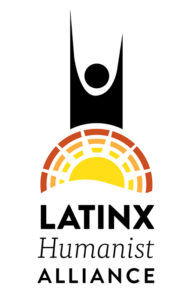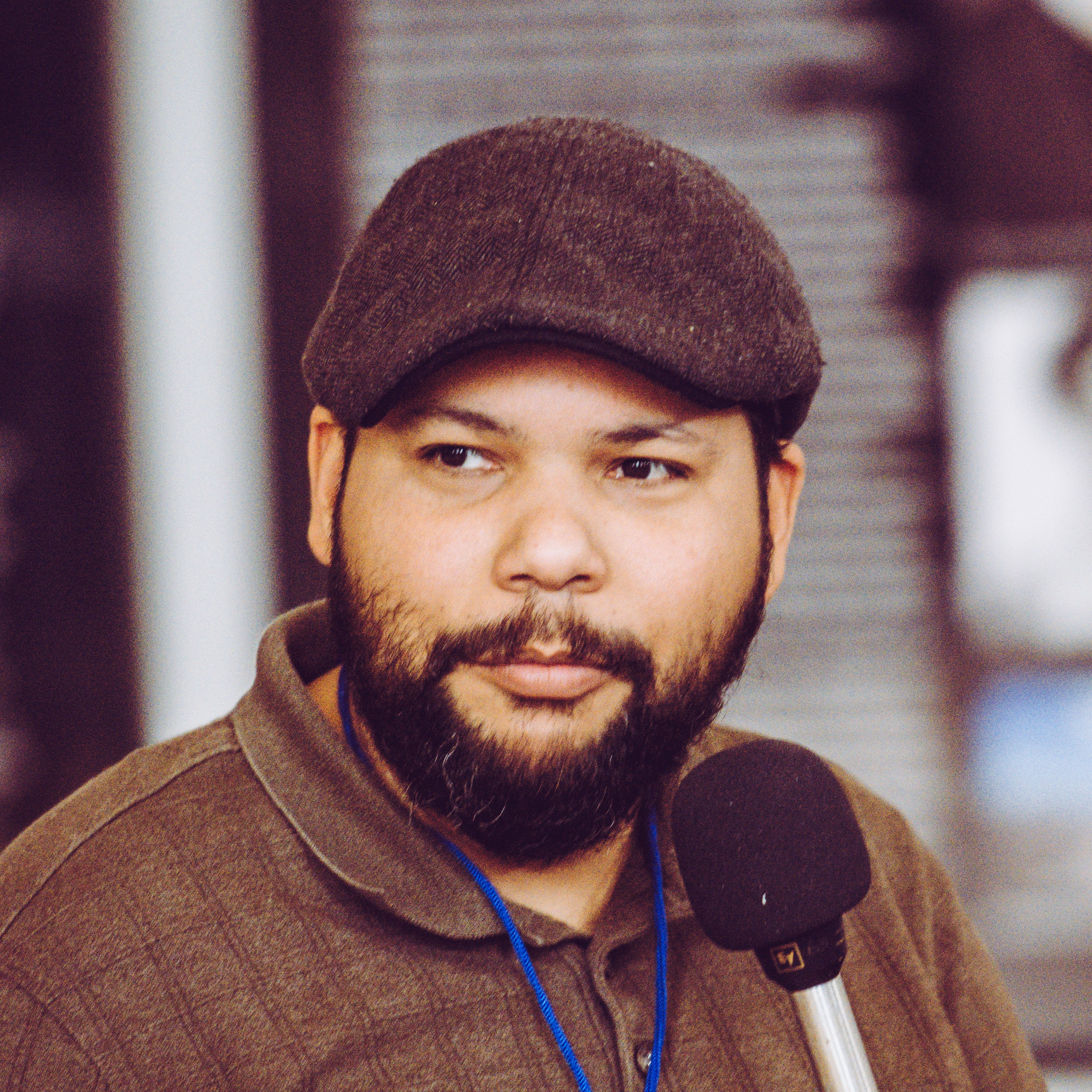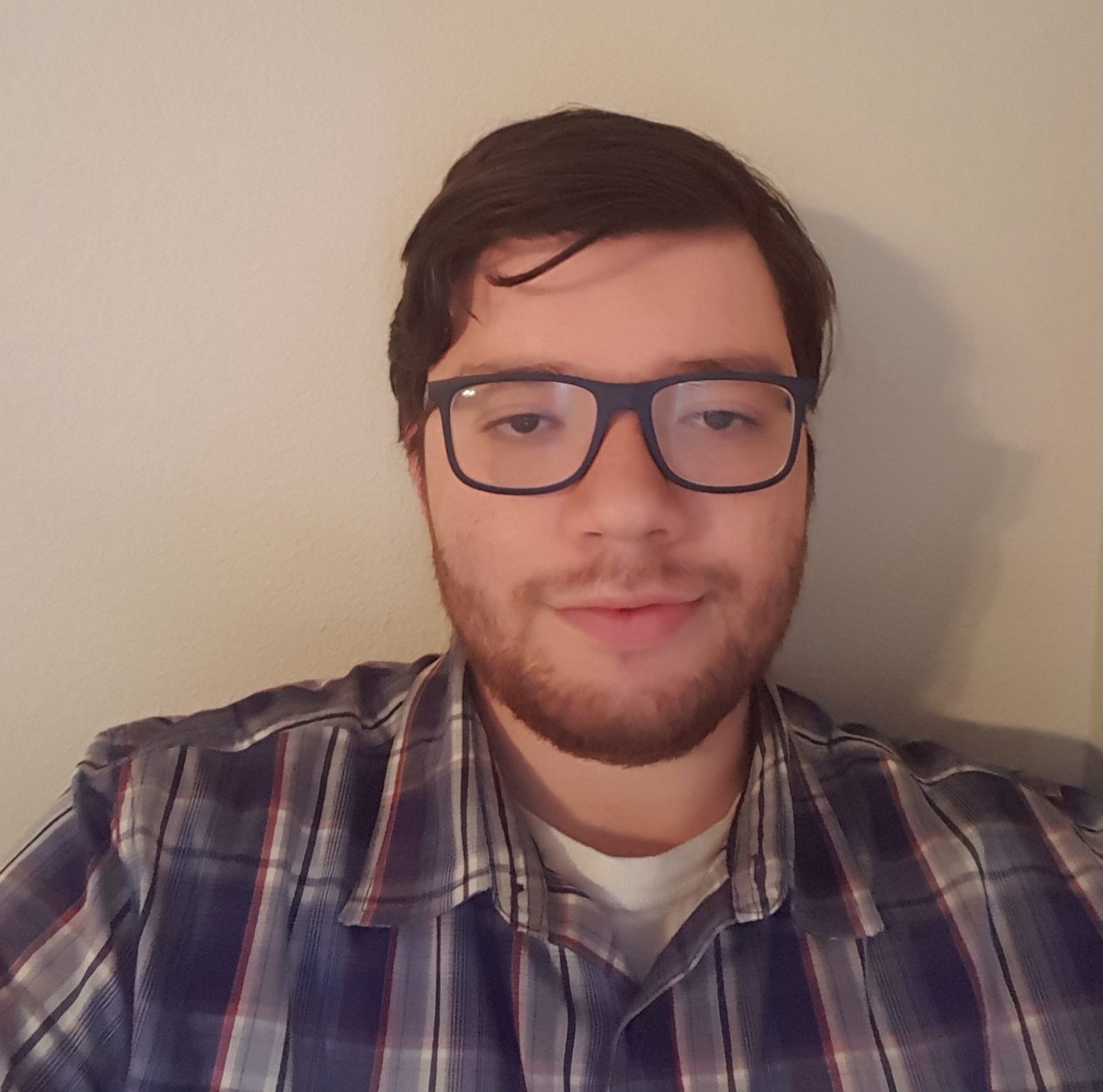Allowing Difference, Pursuing Equality: Latinx Humanist Alliance Has Launched

In preparation for the launch of the American Humanist Association’s newest affinity alliance, the Latinx Humanist Alliance (LHA), AHA Social Justice Coordinator Rachel Deitch sat down with the alliance’s co-chairs, Luciano Gonzalez and Juhem Navarro-Rivera, to discuss the launch, Latinx voices in humanism, and the future of our movement.
Rachel Deitch: So, it’s an exciting week. You’re launching the Latinx Humanist Alliance. Tell me a little about how this all came about?
 Juhem Navarro-Rivera: Many Latinx people who are nones are fellow humanist travelers, but not many know about humanism. A big part of our work is making sure the message gets to as many people as possible. Part of this is by getting involved with the community. One of the good things about the people who have joined the council is that they have a connection to their communities and have been visible activists for many causes and issues, but not necessarily as humanists. Our job as a council, and one of the reasons we are starting this alliance, is to show our communities that we care.
Juhem Navarro-Rivera: Many Latinx people who are nones are fellow humanist travelers, but not many know about humanism. A big part of our work is making sure the message gets to as many people as possible. Part of this is by getting involved with the community. One of the good things about the people who have joined the council is that they have a connection to their communities and have been visible activists for many causes and issues, but not necessarily as humanists. Our job as a council, and one of the reasons we are starting this alliance, is to show our communities that we care.
Many people still have a positive image of religion after leaving it behind, mostly because they appreciate the role religion plays in many communities as a service provider, and they see churches (or church people) involved in their communities. We can likewise provide and show how we are “good without God.” And many have been doing that, just not under the banner of humanism. As we grow and we can get involved in issue advocacy, I would also like the LHA to have a presence in community meetings—whether on immigration, the environment, healthcare—to show that our concerns go beyond matters of church and state.
 Luciano Gonzalez: The AHA recognizes that the conversations that take place throughout the United States revolving around humanism lack a Latinx perspective. Individually, Latinx humanists all over the country are working to change this and we’re gradually succeeding. Now we’re working to organize and change this even faster. Creating a space for Latinx humanists empowers the Latinx humanist community and also creates a direct pipeline for Latinx humanists to get more readily involved with the AHA, which helps everyone.
Luciano Gonzalez: The AHA recognizes that the conversations that take place throughout the United States revolving around humanism lack a Latinx perspective. Individually, Latinx humanists all over the country are working to change this and we’re gradually succeeding. Now we’re working to organize and change this even faster. Creating a space for Latinx humanists empowers the Latinx humanist community and also creates a direct pipeline for Latinx humanists to get more readily involved with the AHA, which helps everyone.
RD: For our readers who might not be familiar with the term, can you talk a little about what “Latinx” means?
LG: The term “Latinx” serves as a gender-neutral alternative to Latino (masculine) or Latina (feminine).
JNR: Spanish is a very gendered language. For example, a chair is referred as “la silla”—essentially a female chair. A computer screen is “el monitor” or a male monitor or screen. The commonly used “Latino” is gendered in that way, in which the male “Latino” means both “Latino” and “Latina.”
LG: And since there are individuals whose experiences with gender and whose identities defy the gender binary of male or female, it makes sense that there would be words that ignore the gender binary as well. Latinx is one such word, and we use Latinx because we’re inclusive and because we want people to feel welcomed into our alliance no matter their gender.
JNR: In my high school and college days we would use “Latino/a” to be inclusive. But Latinx is a more modern usage, and one I like in part because it upsets the language snobs at the Spanish Royal Academy who consider the word an abomination, but also because it is very inclusive.
RD: When did you both learn about and, perhaps, start to identify as humanists?
LG: I learned about humanism shortly after becoming an atheist during my freshman year of college. I had begun researching atheist writers and secular morality, and from there I was just a few clicks away from reading my first articles on secular humanism. From the moment I first learned of humanism, I incorporated humanistic writing and works into my own ethical code. If I had to summarize a long story I’d say that I’ve been a humanist about as long as I’ve been an atheist, so in the spring of 2014.
JNR: I have been suspicious of religion since my Catholic high school days in Puerto Rico. It wasn’t until college at the University of Puerto Rico-Río Piedras where, like Luciano, I got the historical and humanistic education to realize that my doubts weren’t unique to me. I started identifying as an atheist in my early twenties while living in New England, but my first knowledge of organized secularism came when I was working on the seminal American Religious Identification Survey. So many organizations were interested in our data, and a whole world opened to me. Of all the non-religious/non-theistic views in the country, humanism spoke the most to me. So, for the past five years or so, I have considered myself a humanist. What I like about humanism is that it’s not just about identity as a non-theist, but also a philosophy for becoming a better human being. It is a philosophy that allows for difference while pursuing equality.
RD: You both are co-chairing the alliance’s leadership council. Who else is on the council?
JNR: The “Fantastic Five” who got the LHA council started are: José Alvarado, Jessica Xiomara García, Luciano González, and Genny Román. As I thought about who should form the initial group, I thought of people who were, of course, Latinx and secular, but also committed to their communities. I also wanted to represent as many regions and nationalities as possible. Luciano and I live in the DC metro area and we are both Puerto Rican. We’ve collaborated in the past on our dormant (not defunct) podcast, “The Benito Juárez Experience,” and I know of his passion for organizing and his talent as a communicator. Genny is in New York and also of Puerto Rican descent. She has a strong background in progressive activism having worked at several progressive organizations. She’s a great strategic thinker and social media guru. José is our Midwest ambassador of Mexican descent, and one of the Latinx pioneers in the secular movement. He’s the founder of the Chicago Latino Atheists, a group that meets frequently and has helped create a sense of community in that area. He’s the kind of person you need when things need to get done. Last, but not least, is Jessica, our Western ambassador from California and of Salvadoran descent. She’s committed to the community and has some incredible research skills that will allow us to be effective advocates. More recently we’ve brought on Raúl Martínez from Nevada. Raúl is a great asset for us because he has lots of institutional memory within organized humanism as a longtime member of the Humanists and Atheists of Las Vegas and a former AHA board member. Moreover, as a humanist celebrant, he has experience bringing formality to the humanist philosophy and accessible to more people.
RD: What does the alliance see as the unique issues facing Latinx humanists?
LG: Many people want to talk about immigrant issues and immediately look to Latinx communities, and while it’s true that there are plenty of Latinx folks who are immigrants there are also many who are natives to this country going back generations. Conflating immigrant and Latinx issues tends to come from a well-meaning place, but it also erases immigrants from other parts of the world. A solution to that could definitely include the creation of an alliance of humanists who are immigrants, but that’s just one part of a complex and multistep solution that could become a priority of both the Latinx Humanist Alliance and the American Humanist Association in the future.
JNR: It’s important to reflect the diversity of the community in the council. But it’s not just about the nationalities represented, but also of the experiences. Right now we have people in their twenties, thirties, and forties. Former Catholics of varying degrees of practice, former Protestants. We need those and more diverse voices to be able to serve our community of interest in a sensitive way.
RD: How does the leadership council plan to do that, to serve this diverse community?
LG: During the first year of the LHA, the leadership council plans to spend a lot of time creating resources and space for Latinx humanists. We are creating a speaker’s bureau in conjunction with members of the Hispanic American Freethinkers and the Secular Latino Alliance. We are also working hard on becoming representatives who can intelligently discuss issues of importance to our community and can advocate fiercely for more representation of Latinx humanists in the news and elsewhere in the media. We are also interested in creating online communities for members of the alliance at all levels to interact while discussing issues of importance to humanists in general and Latinx humanists specifically.
RD: And going back to Juhem’s point about bringing in more voices, how can our readers and fellow Latinx humanists get involved or learn more?
LG: One really easy way to get involved is to check out our website! Also, follow us on social media to see relevant articles and announcements related to the alliance. If someone wants to contact us, but are closeted and afraid of the possibility of this information showing up directly in their search history they can send me an email at Lucianothewriter@Gmail.com.
